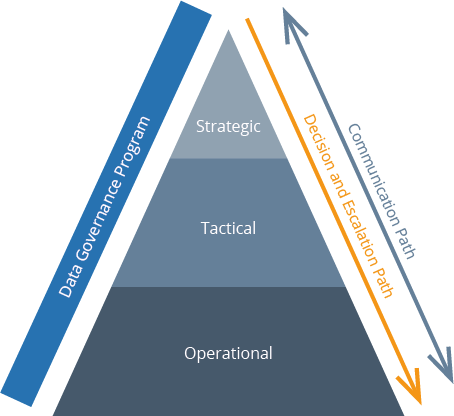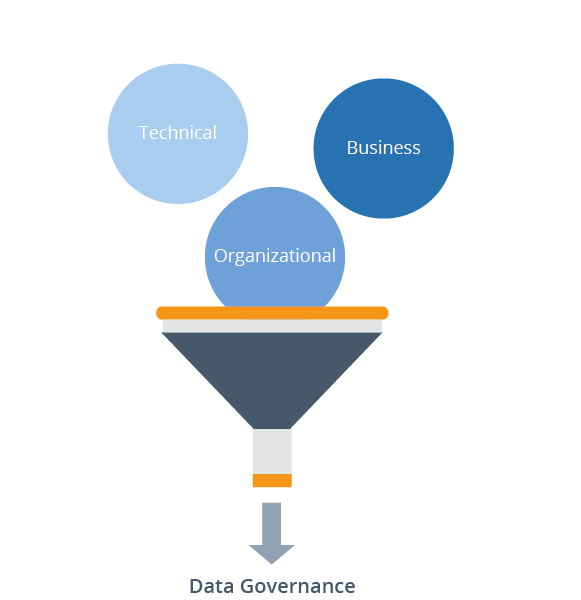Data Governance UGC NET Paper-1 Unit-6 Complete Details
Data Governance includes the people, processes and technologies needed to manage and protect the company’s data assets in order to guarantee generally understandable, correct, complete, trustworthy, secure and discoverable corporate data.
The topics encompassed by data governance are:
At its core, data governance is about establishing methods, and an organization with clear responsibilities and processes to standardize, integrate, protect and store corporate data. The key goals are to:
-
Minimize risks
-
Establish internal rules for data use
-
Implement compliance requirements
-
Improve internal and external communication
-
Increase the value of data
-
Facilitate the administration of the above
-
Reduce costs
-
Help to ensure the continued existence of the company through risk management and optimization
Data governance programs always affect the strategic, tactical and operational levels in enterprises (see figure below). In order to efficiently organize and use data in the context of the company and in coordination with other data projects, data governance programs must be treated as an ongoing, iterative process.
In addition to the responsibilities, the following aspects of any data governance program must be clarified (see figure below).
-
The organization (the “where” and “who”)
-
Business aspects (the “what”)
-
Technical aspects (the “how”).

Why Data Governance Matters
Most companies already have some form of data governance for individual applications or business departments, although it is not necessarily comprehensively institutionalized. The systematic introduction of data governance is therefore often an evolution from informal rules to formal control.
Formal data governance is normally implemented once a company has reached a size at which cross-functional tasks can no longer be implemented efficiently.
Data governance is a prerequisite for numerous tasks or projects and has many clear benefits:
-
Consistent, uniform data and processes across the organization are a prerequisite for better and more comprehensive decision support;
-
Increasing the scalability of the IT landscape at a technical, business and organizational level through clear rules for changing processes and data;
-
Central control mechanisms offer potential to optimize the cost of data management (increasingly important in the age of exploding data sets);
-
Increased efficiency through the use of synergies (e.g. by reusing processes and data);
-
Higher confidence in data through quality-assured and certified data as well as complete documentation of data processes;
-
Achieving compliance guidelines, such as Basel III and Solvency II;
-
Security for internal and external data by monitoring and reviewing privacy policies;
-
Increased process efficiency by reducing long coordination processes (e.g. through clear requirements management);
-
Clear and transparent communication through standardization. This is the prerequisite for enterprise-wide data-centric initiatives;
-
Further, specific benefits result from the specific nature of each data governance program.
More than ever, data governance is vital for companies to remain responsive. It is also important to open up new and innovative fields of business, for example by big data analyses, which do not permit the persistence of backward thinking and overhauled structures.
At the moment, the most important drivers that lead companies to rethink their current approaches are:
-
Establish data-centric views to support digital business models
-
Enterprise-wide data quality and master data management
-
Manageability of data in big data environments
-
Creation of standards to increase the ability to react to external influences (e.g. M & A)
-
Self-service BI (SSBI): Users want to carry out analyses independently of IT
-
Compliance: transparent and understandable data processes to comply with legal requirements
In addition to these drivers, there are a number of other developments and requirements that make data governance more and more relevant.
Examples include operational BI, advanced analysis, social media, a 360° degree customer view, BI in the cloud or as a service, information strategies, and compliance with data protection guidelines for internal and external use of data (SCM, CRM).






